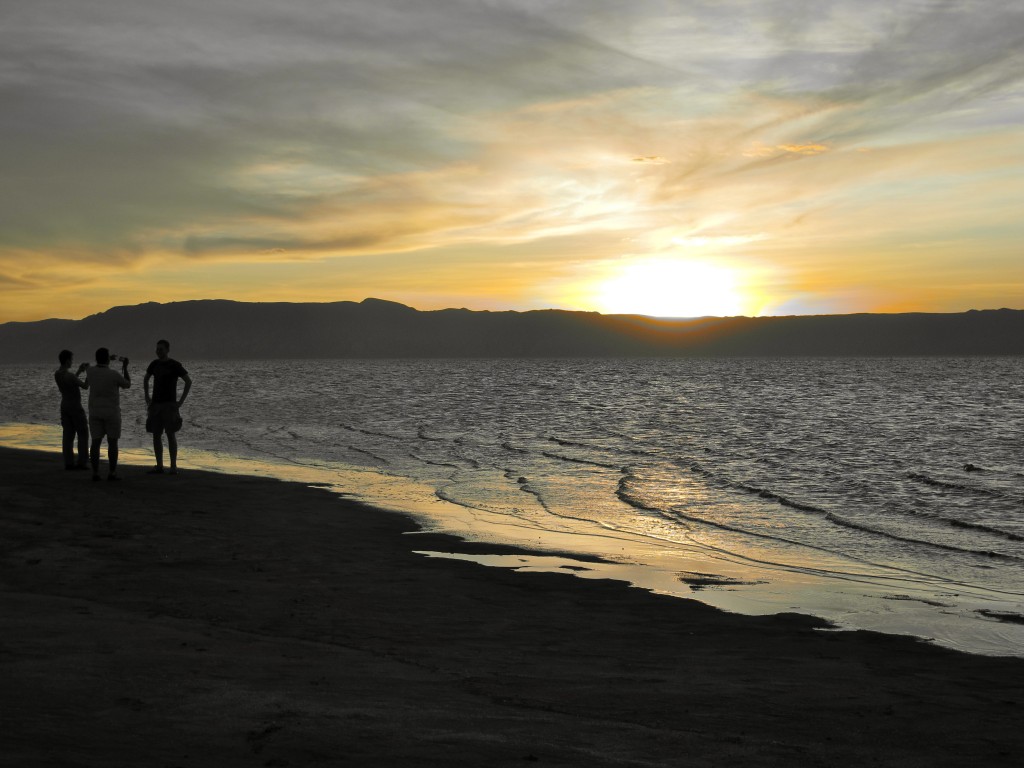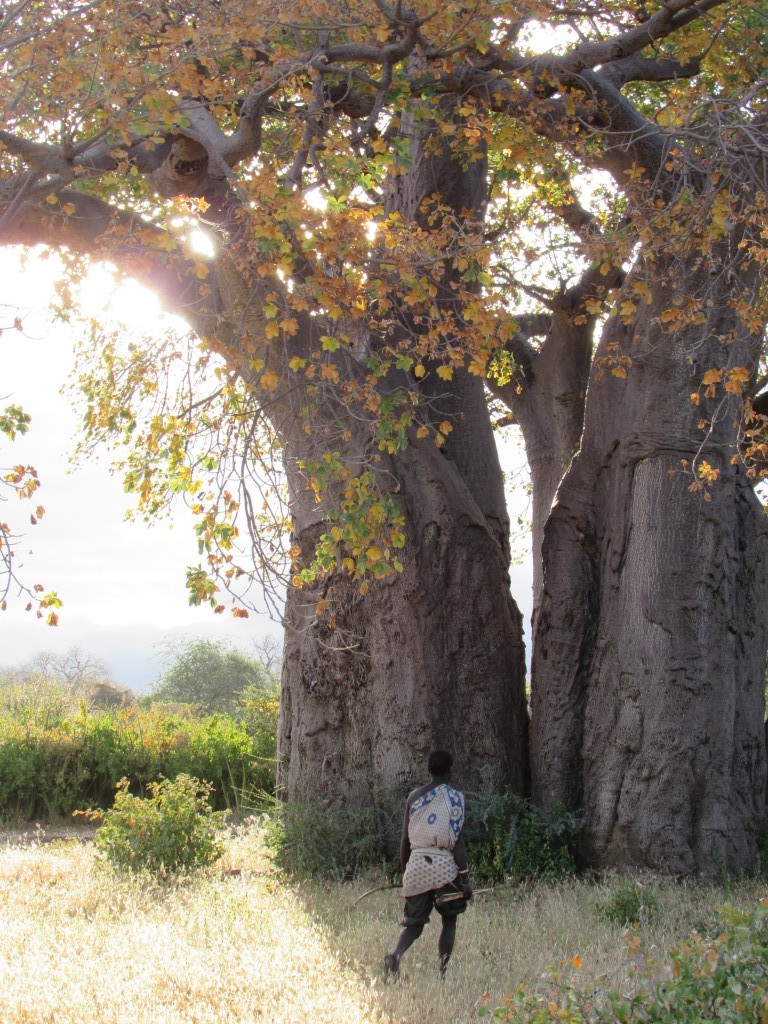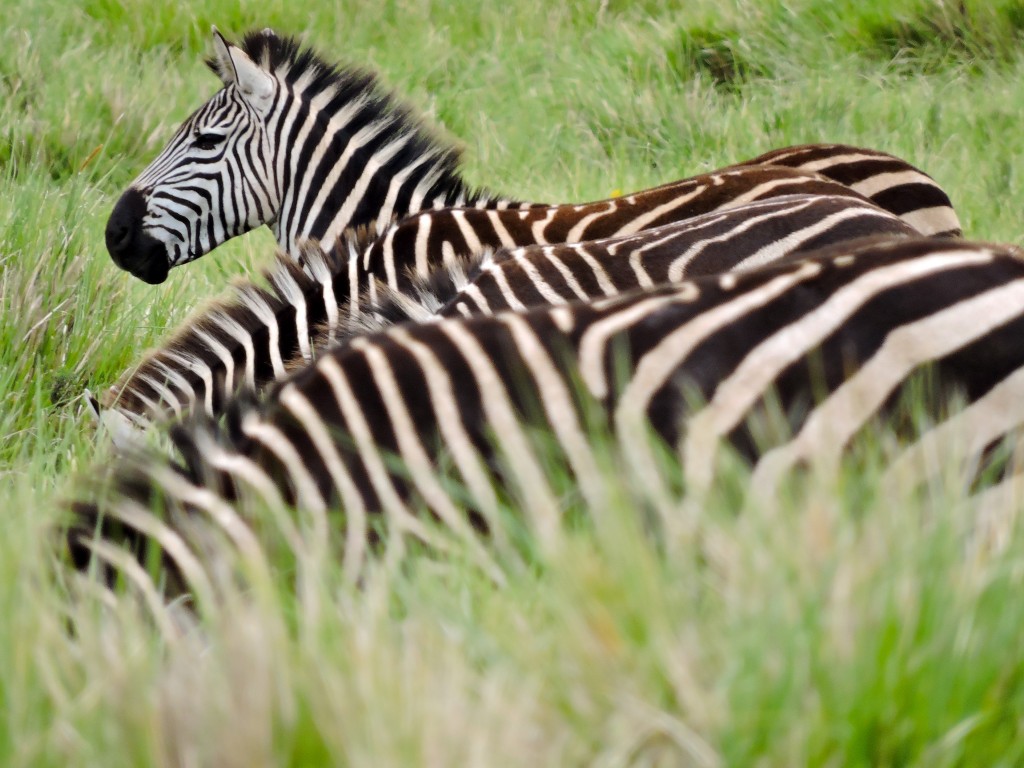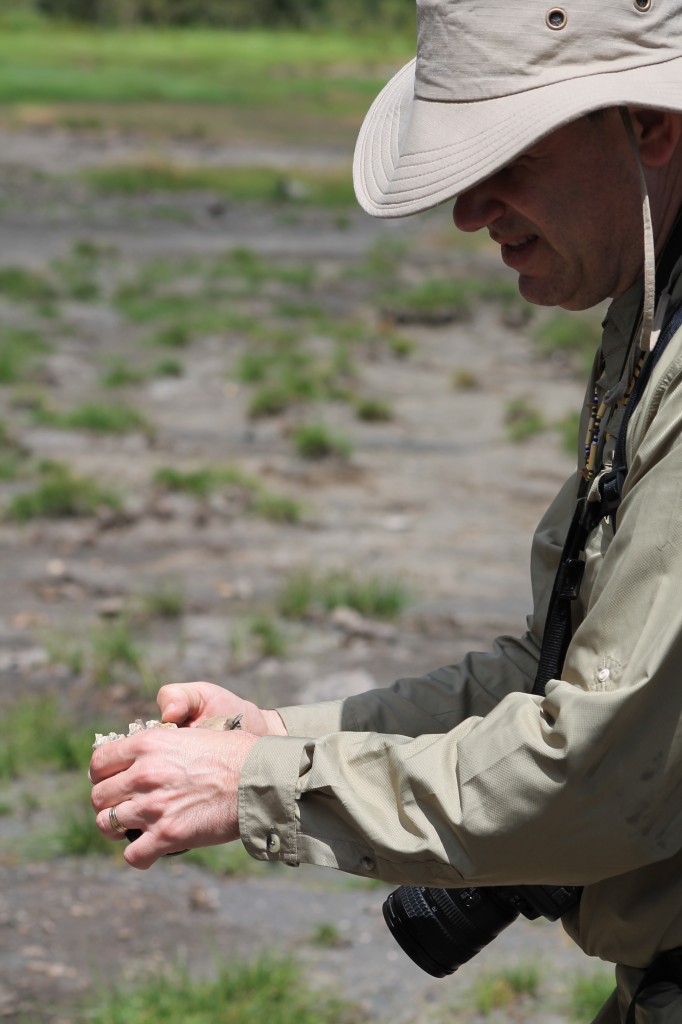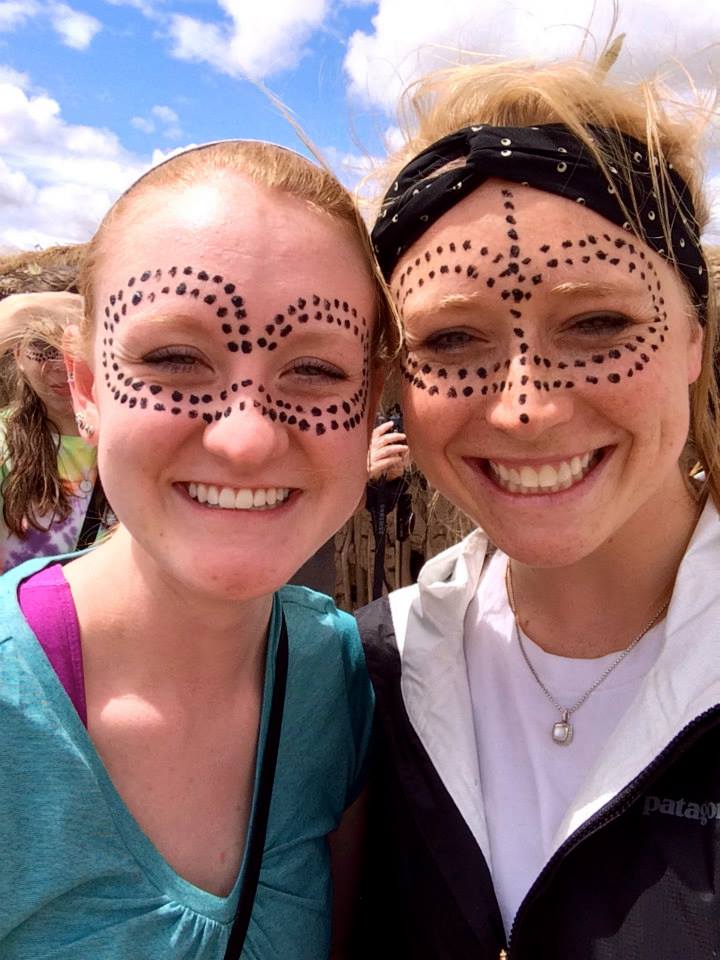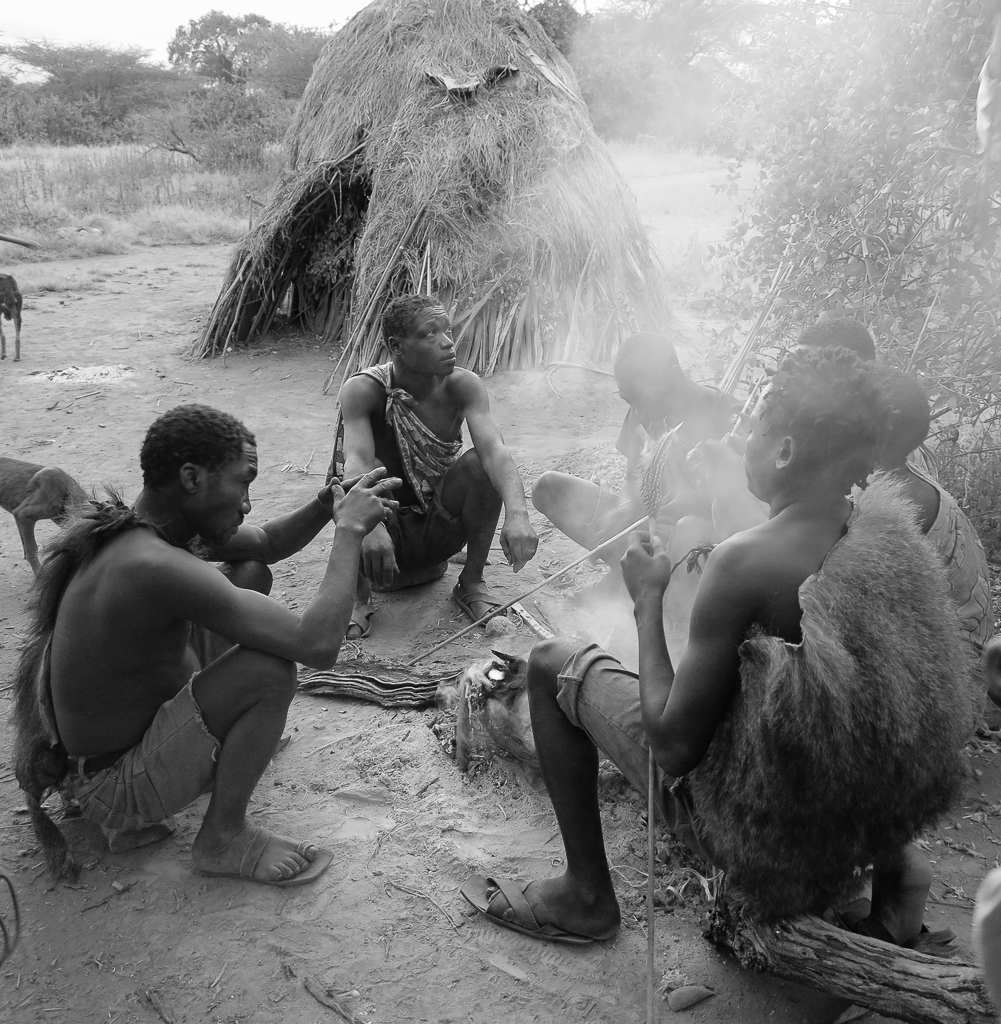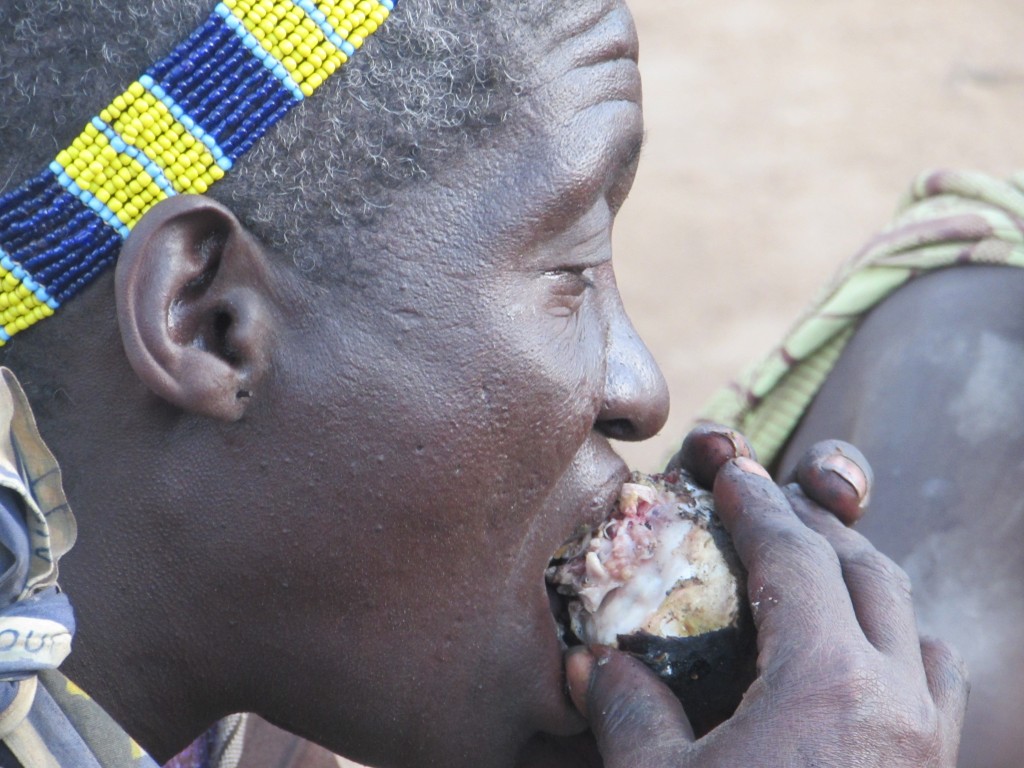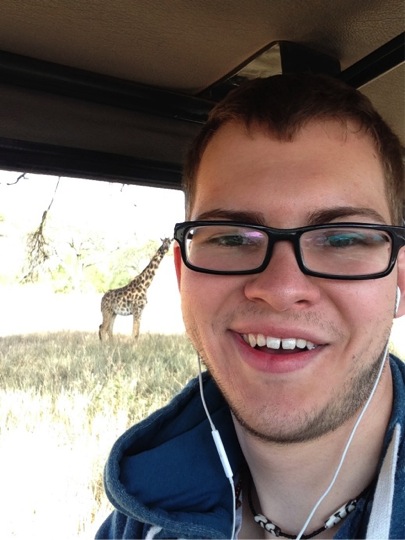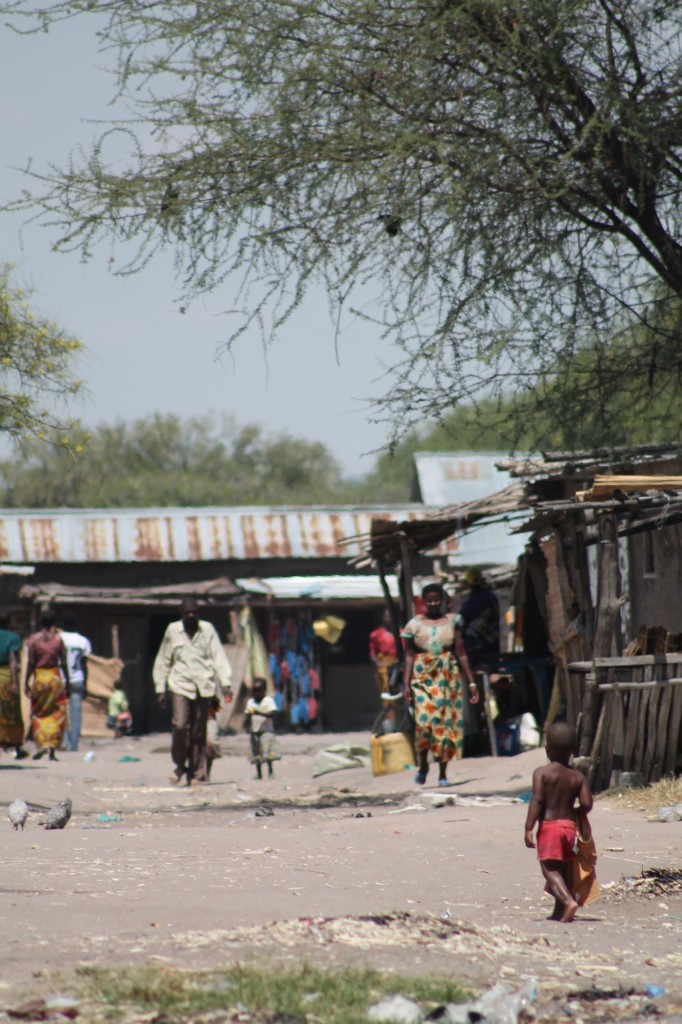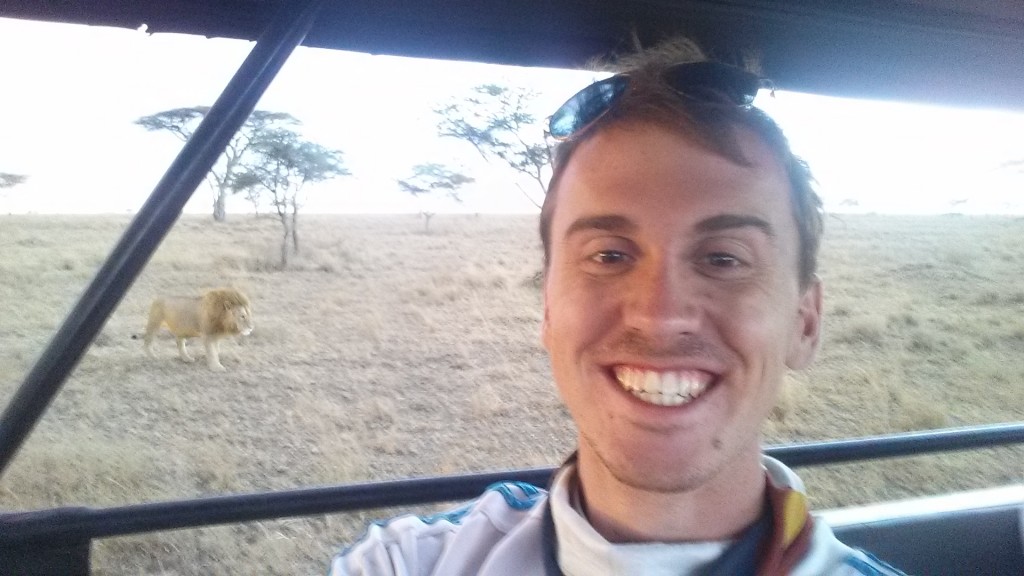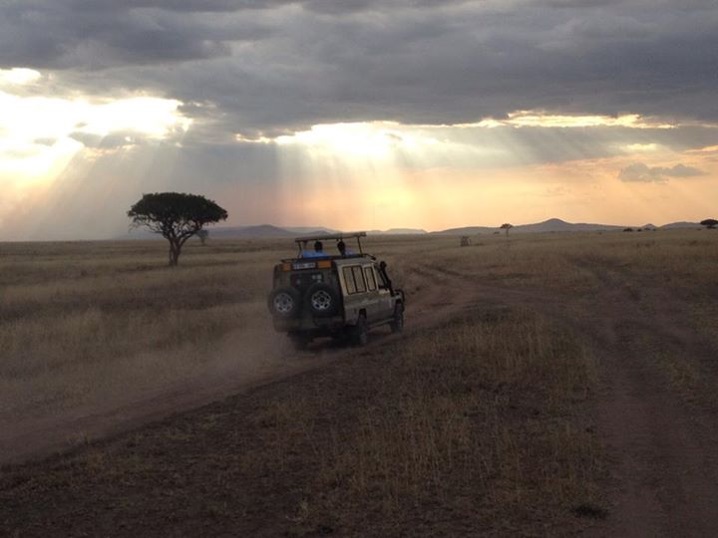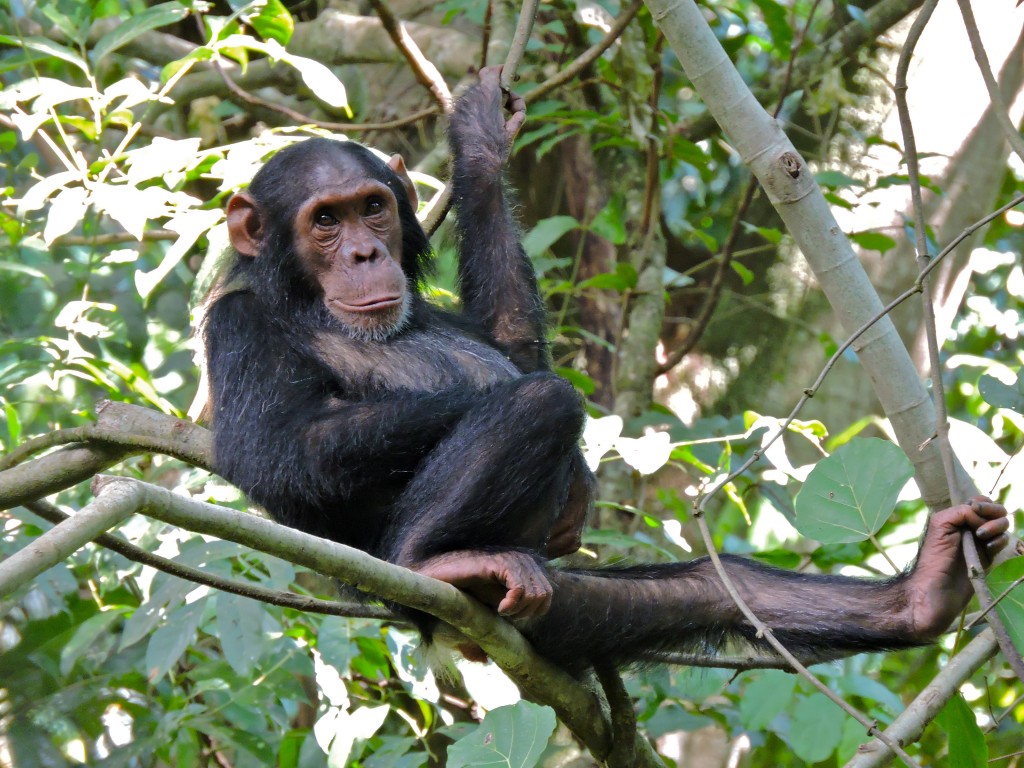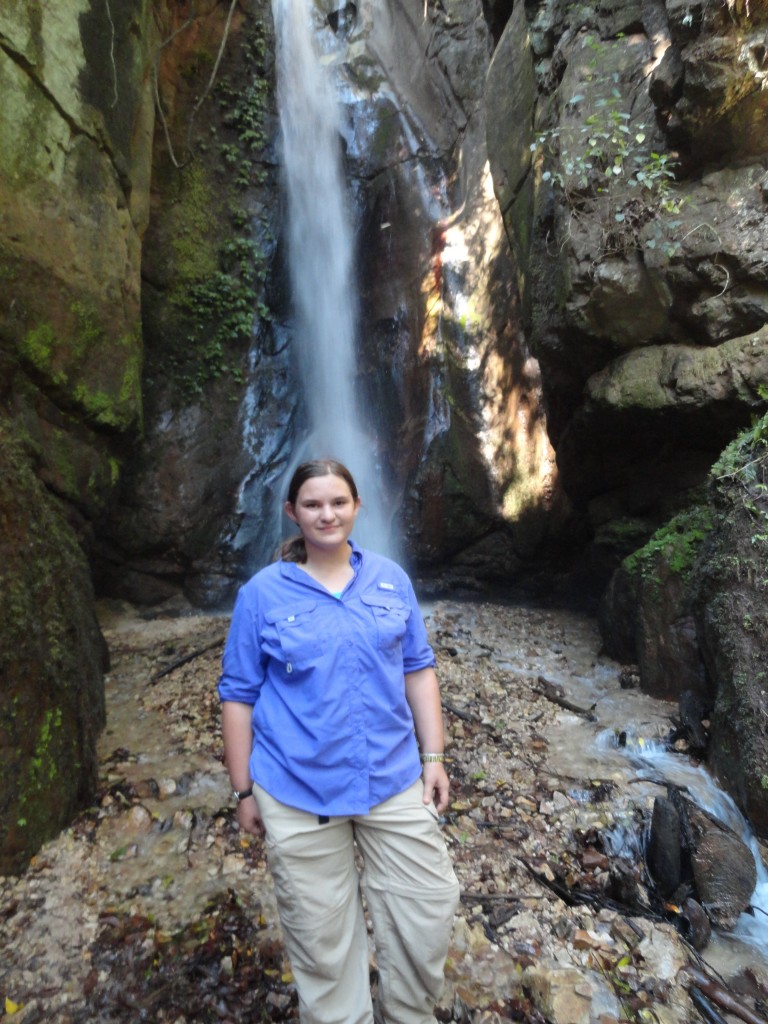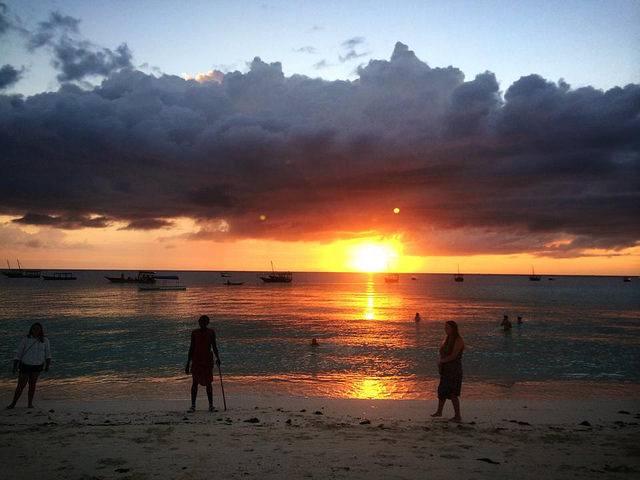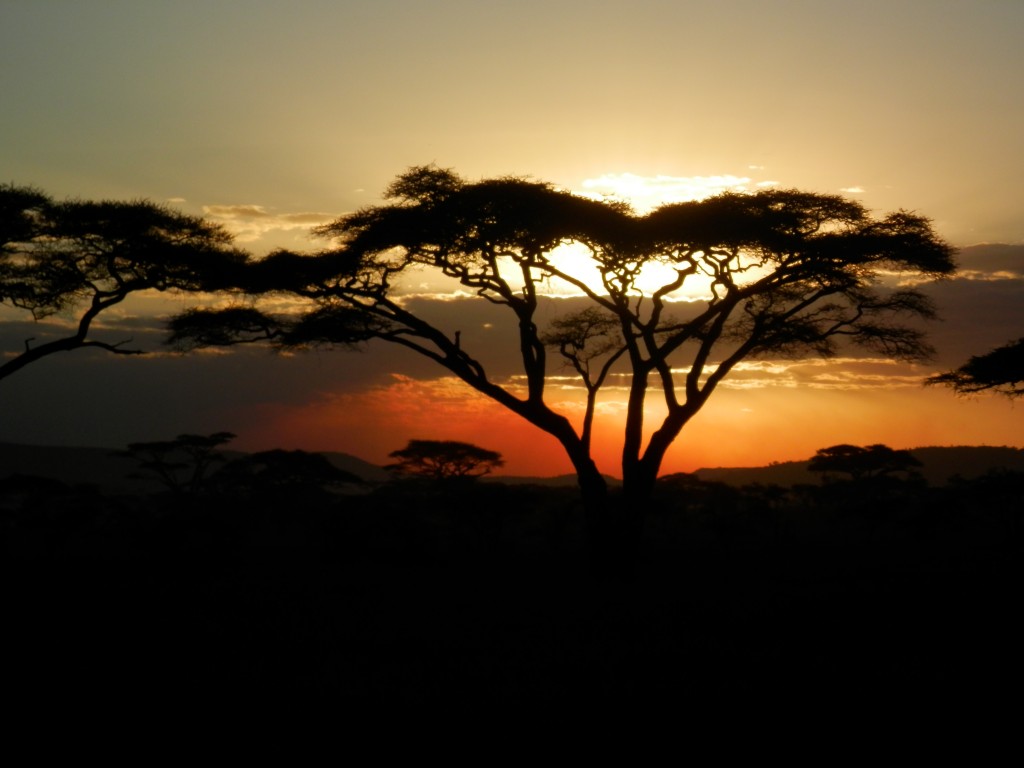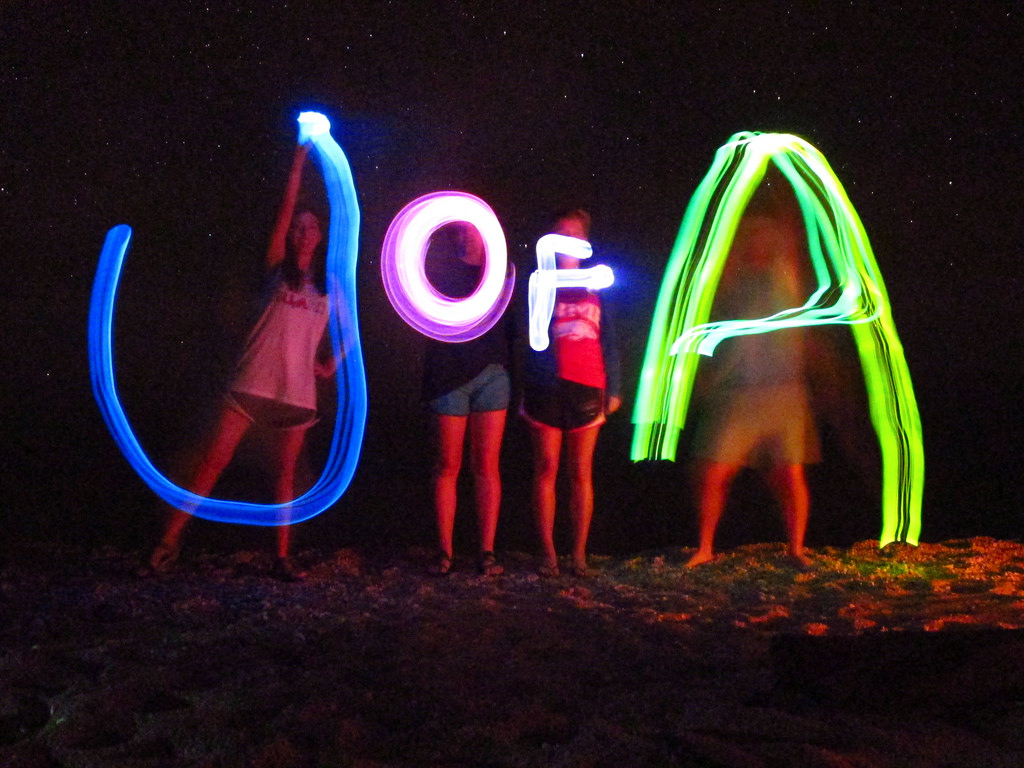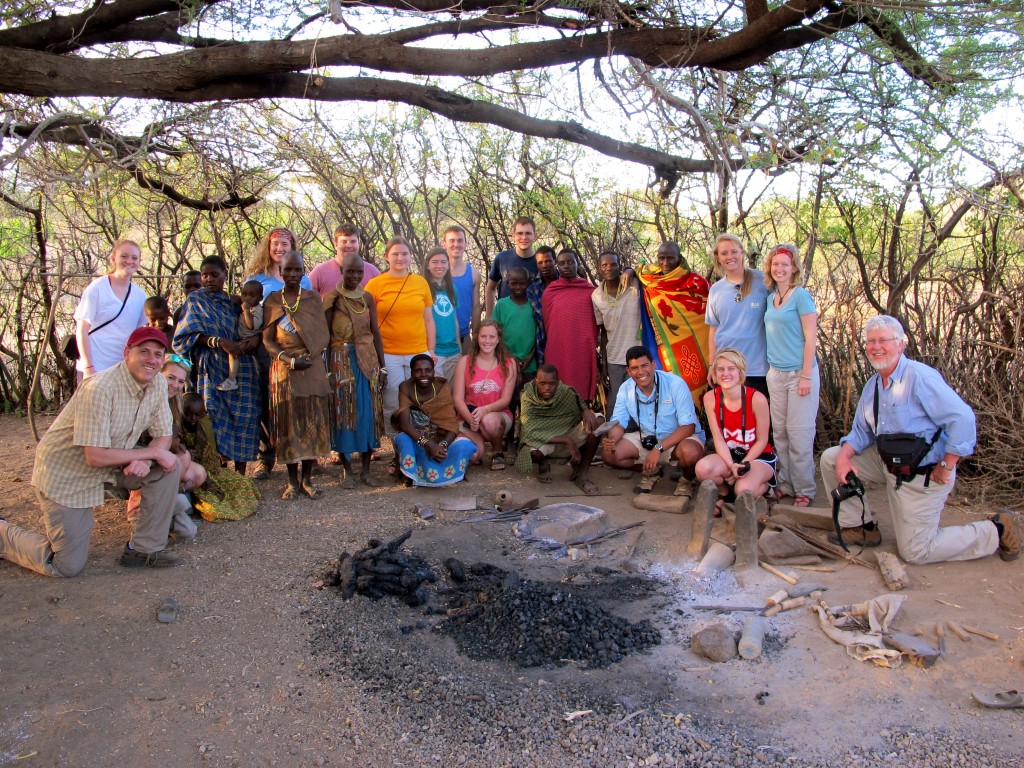
Dr. Peter Ungar (far left), Dr. Charles Adams (far right) and the Tanzania group snap a photo with the members of the Datoga tribe, just one of the groups that the team spent time with in Tanzania.
Beloved American author and journalist Ernest Hemingway once said, “I never knew of a morning in Africa when I woke up and was not happy.” Surely he is not alone in this opinion. This summer, English professor Dr. Charles Adams and anthropology professor Dr. Peter Ungar led a group of 13 Arkansas students across the globe to Tanzania to study its natural, social and political environments. I got lucky to be a part of this group, but my personal arsenal of stories and photos captured only a snapshot of all that this experience had to offer. Nine of the 13 students in this program are honors students, and as the study abroad blogs roll in I’ve been captivated by the unique imagery, anecdotes and insights that they have shared with me.
Tanzania was not my first experience abroad, but it was one of the most powerful.
As an honors student, my college experience has been rich with opportunity – more so than I could have ever imagined on my first day of class. I remember the day vividly, and it included a whole lot of “What in the world am I going to do now?” I knew I had to push the boundaries of my college experience because unlike most of my friends, when I graduated high school I only stepped a mile away to become a Razorback (yes, I am a proud Fayetteville Bulldog.) Thanks to an incredible Fellowship, my decision to stay close for college gave me the resources I needed to travel far beyond the border of not only my state, but my country as well. As they say, the world was my oyster.
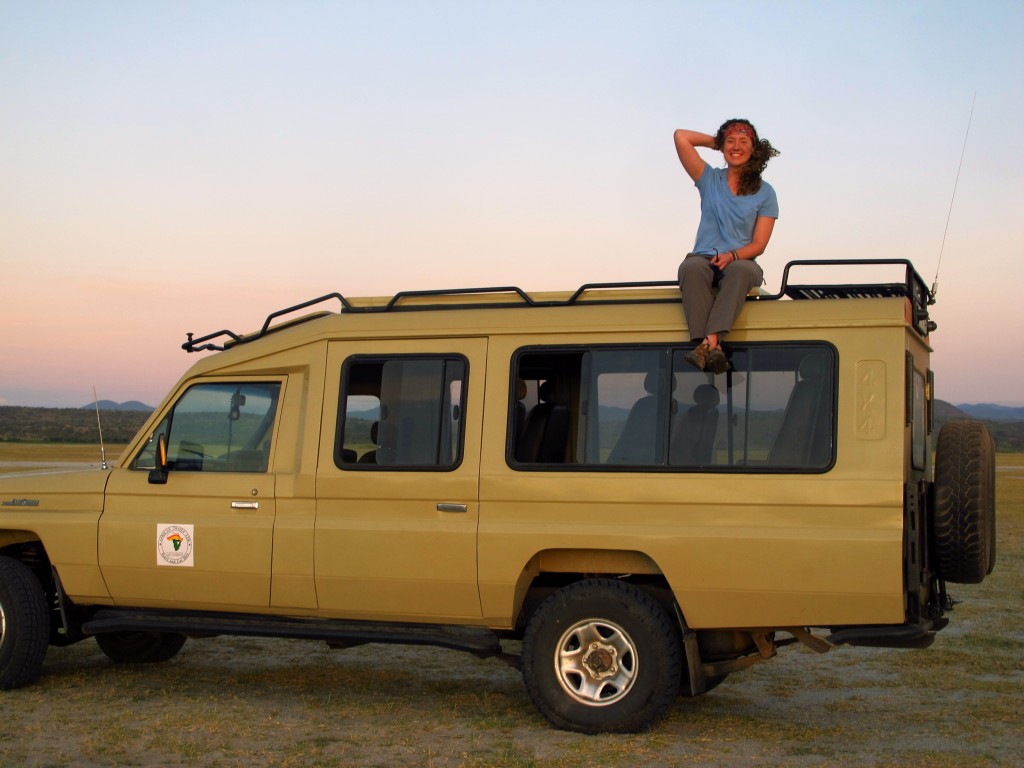
I spent my first Tanzanian sunset at Lake Eyasi, a lake within the oldest part of the Eastern Rift Valley. From here you find access to the lands on which the Hadzabe and Datoga live, two of Tanzania’s most fascinating tribes.
The challenge was to crack it open and find my pearl. It didn’t take long for me to realize that study abroad could be my perfect tool – I could discover, create, and serve both the Honors College and myself, all the while learning through some of the most incredible opportunities this university has to offer.
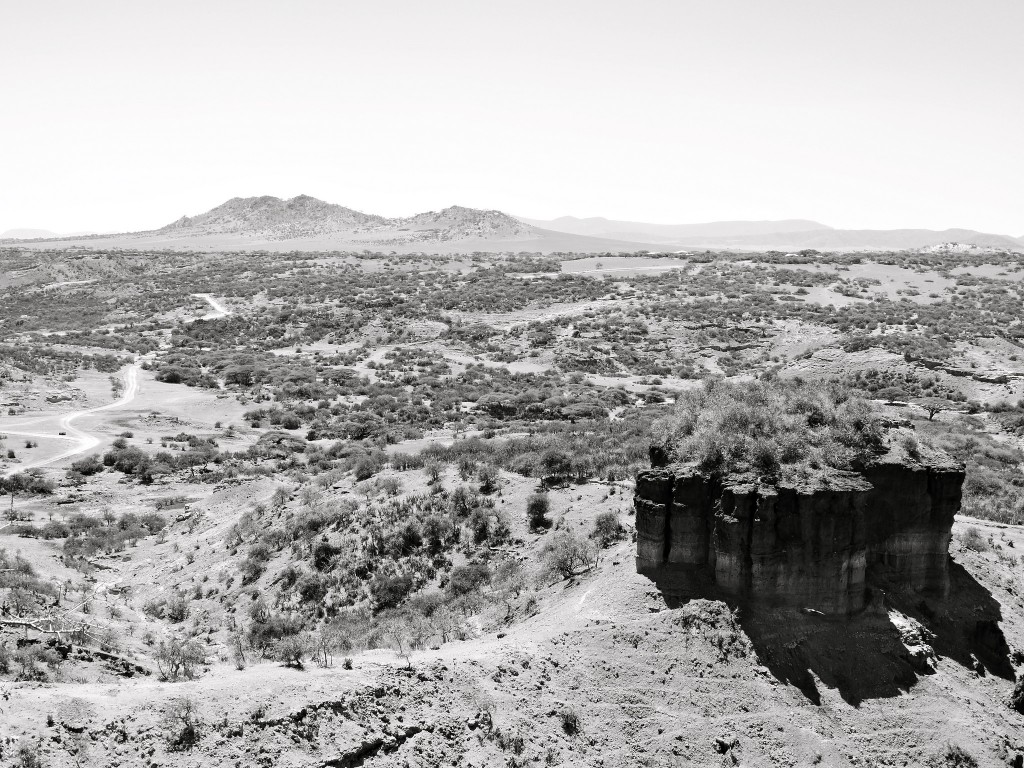
Olduvai Gorge, Tanzania. Perhaps one of the most important paleoanthropological sites in the world, discoveries in this gorge were instrumental to our understanding of human evolution. Photo by Kelsey Ferguson.
Over the course of four years, I have studied abroad three times. After my first semester abroad I caught the fever and the only prescription was (you guessed it): more travel. I enrolled in a second, and then a third study abroad program, finally weaning myself off this summer upon my return from Tanzania.
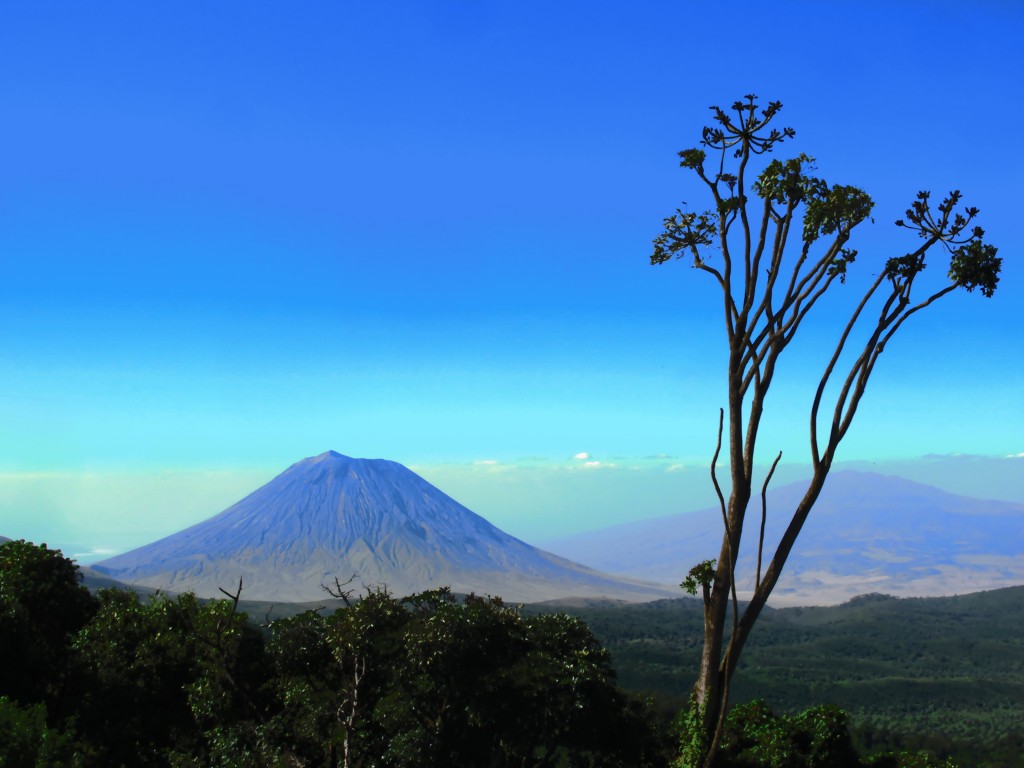
In a remote corner of Tanzania stands an astonishing mountain called Ol Doinyo Lengai, where lava fountains harden in midair and then shatter like glass. Unlike other volcanoes, which spew silica-rich basalts, Ol Doinyo Lengai is the only active volcano on Earth that erupts with a carbonatite, a type of igneous rock rich in carbonates such as calcite and dolomite. Photo by Kelsey Ferguson.
Alas, with medication there’s always a chance of side effects. Study abroad filled me with a wealth of knowledge, but I couldn’t help but feel that my task was incomplete. Up to this point, all that I shared with others stemmed from my perspective – but what about those of other students?
The Tanzania program this summer gave me the answer I was looking for.
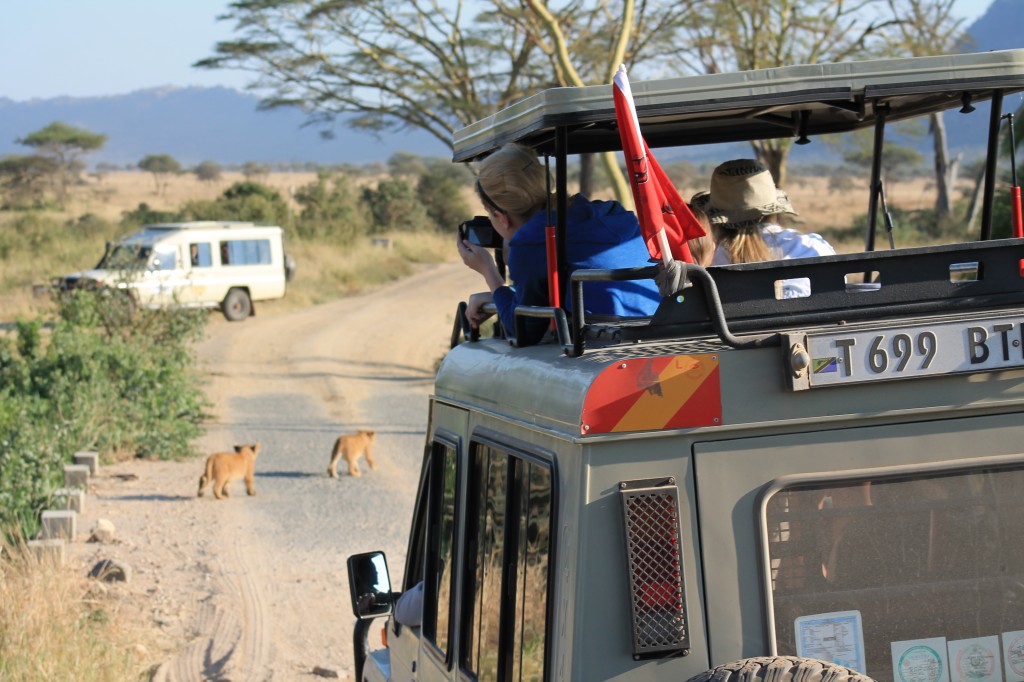
In Serengeti National Park, honors student Emily Barber catches two lion cubs crossing the road. Photo by Holly Hilliard.
The Tanzania program was a quintessential example of experiential learning – that is, a chance to take our education outside of the classroom and into the world. A risky endeavor, we all began our journey with relatively similar perceptions of the social, political and physical environments of Tanzania.
We all returned with an entirely unique lens for reflection. The result resembled a mosaic: for some, it was the vast scope of the Tanzanian landscape that swept us up and humbled us to the core. For others, the wildlife sparked new connections between our roles as humans and our environment. For others still, it was the people of this country who made the largest impact.
Nine students. Seven majors. One panoramic perspective.
I turn it over to the group.
Emily Barber – Political Science
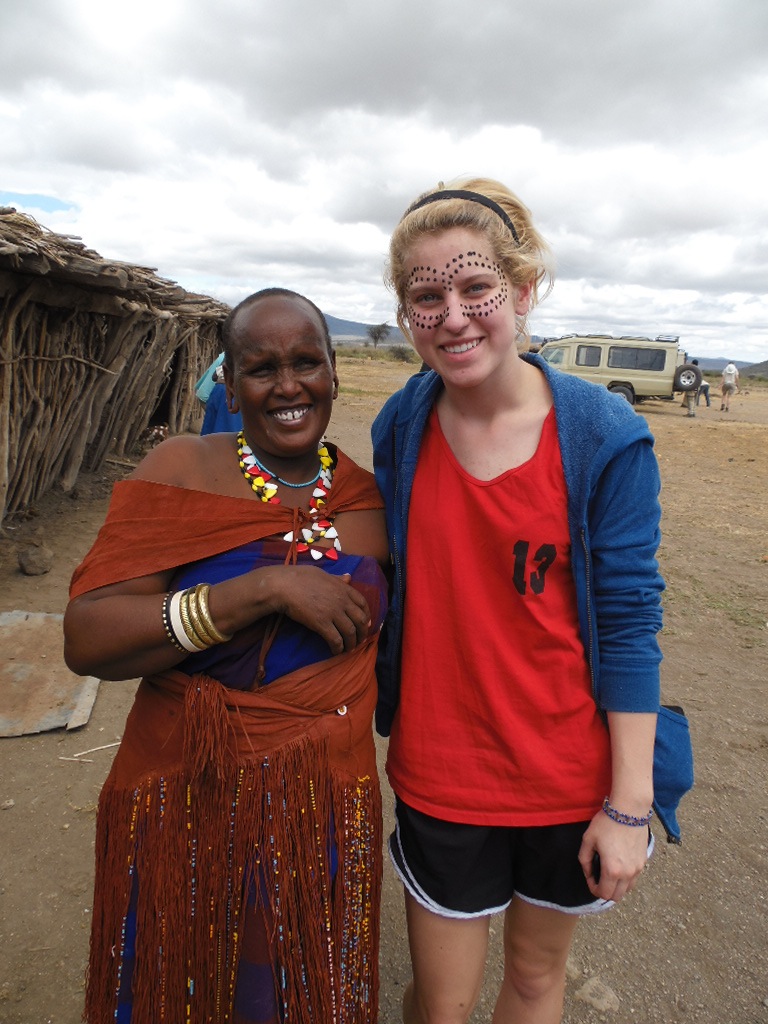
Emily Barber wears a temporary version of the permanent facial tattoo of Datoga women, an iconic practice within their tribe.
There’s really no way to prepare for a visit to Africa. Friends and family asked me for weeks before I left, “Are you ready? Has it set in yet?” And truthfully, it hadn’t. It didn’t set in during my 19 hours in the sky, or when I was fumbling through customs in Swahili at Kilimanjaro Airport. It didn’t set in as our bus drove on the left side of the road all the way to Arusha, or even when I handed over all my US dollars in exchange for orange and blue shillings covered in roaring lions.
It didn’t set in until I was sitting in the middle of an open field in Maasailand with two young Maasai warriors, speaking to them with only a combination of gestures and broken Swahili. We had no arranged visits with Maasai, as they are generally less open to interaction with foreigners, but had happened upon them while searching for a dropped cell phone. They spoke no English and very little Swahili, and were a bit afraid of my camera at first. After fifteen minutes of interaction with these two members of one of the world’s most fascinating and isolated tribes, it finally set in. I was in Tanzania.
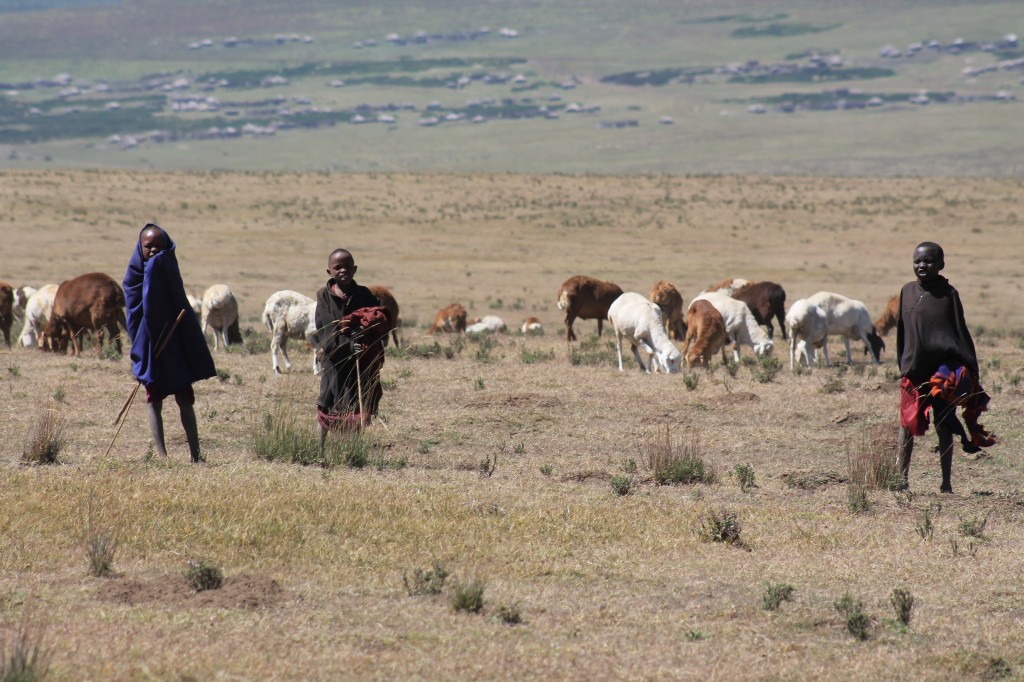
Maasai, who live a semi-nomadic lifestyle, are the only tribe allowed to live in Tanzania’s protected Ngorongoro Crater. Photo by Holly Hilliard.
Holly Hilliard – Industrial Engineering
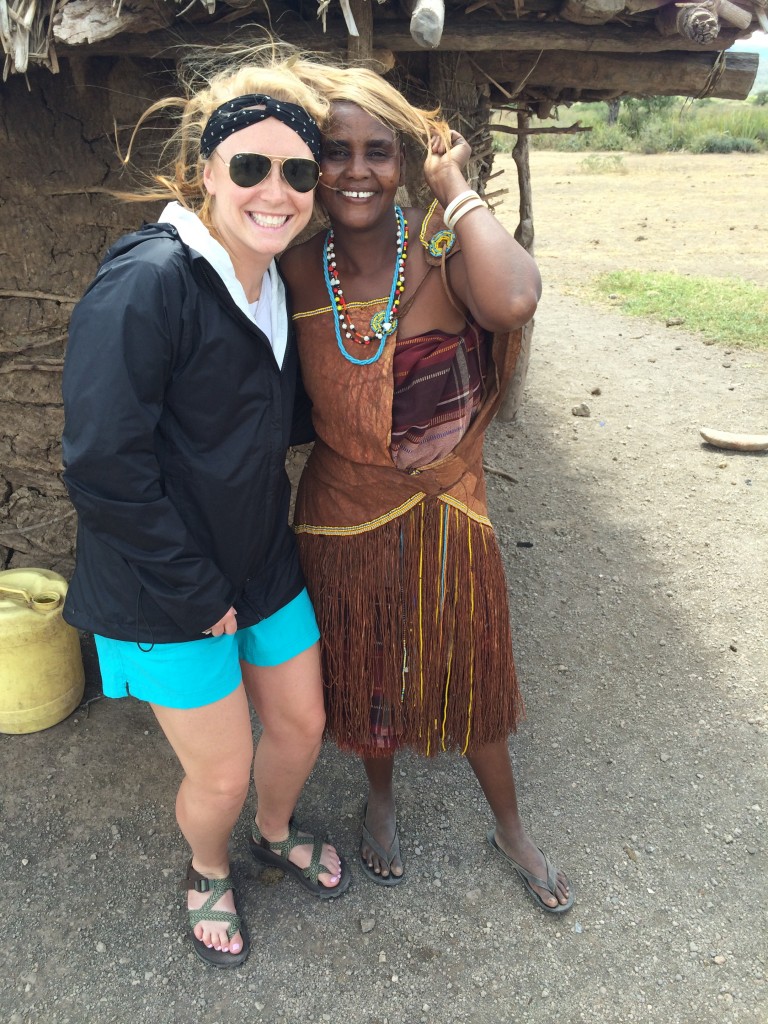
A woman from the Datoga tribe makes a first meeting humorous by trying on Holly’s strawberry blond hair.
Our group of thirteen students and two professors traveled all across Tanzania, including the Serengeti, Gombe, and Zanzibar, and along the way I developed a new appreciation for the rich culture and history of East Africa.
Georgia Poole – International Business
We spent time with the Hadzabe people, a traditional hunter-gatherer tribe. We were able to hunt with them, dance with them and observe their lifestyle. We left our tented camp and pulled up in our safari vehicles at sunrise to see a group of Hadza hovering over a fire, surrounded by trees filled with animal skulls. It was only a little after 5:00 a.m., but they were already preparing their breakfast for the morning. On the menu were monkeys and bush babies. It was remarkable to be able to be among the people we had so thoroughly studied and actually get to be a part of their lives for a day.
Andrés Herrera – Chemical Engineering

Taking a break from the road at Maasailand on May 23, 2014. While waiting for the rest of group to arrive, Andrés sits on top of the cruiser to watch the mountains and the interaction between the Maasai and their livestock.
The Hadzabe diet is limited to what they hunt during the day and local fruits. At the time we visited, the tribe had plenty of food for an entire week, something that is not usually the case for them.
Eric Carter – Psychology
The second week of the trip was spent in eastern Tanzania along the rift valley lakes. We visited fishing villages and a few cities. The highlight of this part of the trip was meeting a home grown feminist whose motto was “no money for the men.” She didn’t know the word “feminism,” but that hadn’t stopped her from building a school and creating a successful micro-finance program that empowered women.
Bryce Jones – Chemical Engineering
On our way back to the Serena Lodge in the Serengeti, our group sighted a lion whose path led straight between our vehicles. This gave us an amazing opportunity to take pictures with this majestic simba (Swahili for lion). Not only was this a great way to finish an amazing day on the Serengeti, but also a chance to observe the wildlife we came to study up close.
Shortly after this picture was taken we would witness the sun setting with a herd of elephants walking underneath. Here, though, we are enjoying the drive across an arid landscape spotted by only a few acacia trees as sunbeams skirt the horizon.
Kaitlyn Nolker – Anthropology
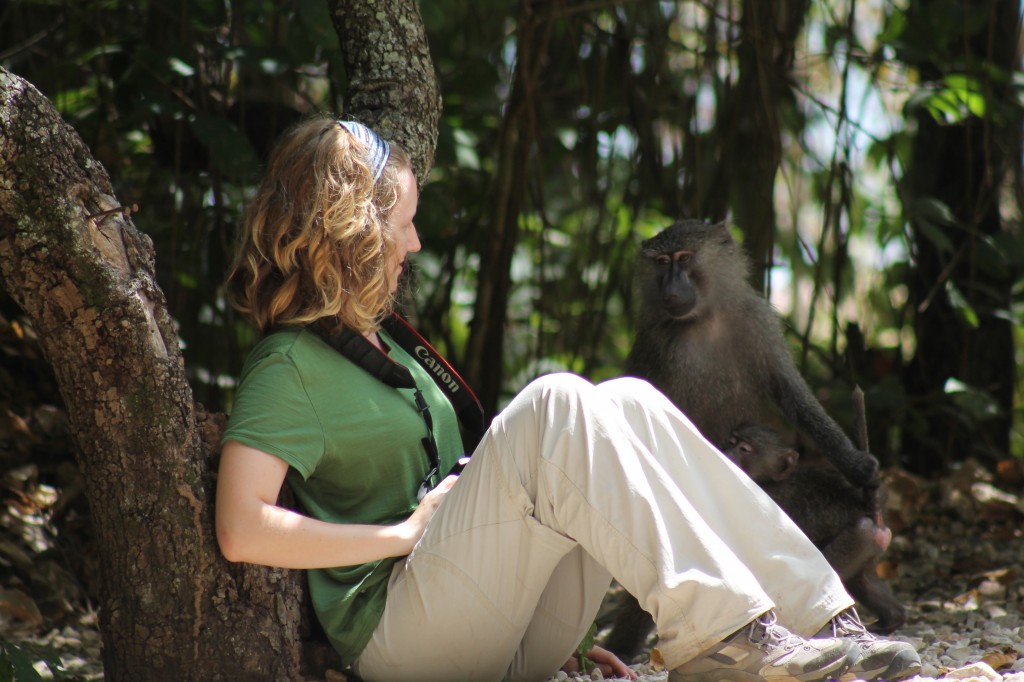
In Gombe Stream National Park, Kaitlyn remains still as a young female baboon approaches her curiously. Photo by Holly Hilliard.
My favorite experience was our time in Gombe. We rose early both mornings for a couple hours of chimpanzee tracking and observation, just like Jane Goodall during her studies. Trekking through the thick forests to find these beautiful creatures was exhilarating, especially when we would suddenly come upon a troop of wild chimpanzees. They are such beautiful creatures – eyes burning with complexity and awareness, much like a human’s.
Katie Sargent – Anthropology
Tanzania is the most incredible place I have ever been. It is also the most impoverished. A land of contrast, it is a fascinating mixture of the old and new—traditional architecture covered in advertisements for Coke, Maasai warriors with cell phones, ancient vessels with modern engines, and hunter gatherers with Survivor t-shirts. Small villages filled with dirt and trash dot the resplendent landscape. And amidst the miasma of poverty, conflict, and fear, the people remain—they are kind, resourceful, determined, cheerful, and entirely beautiful.
At one point, I and some other members of our group played Frisbee with a few of them on the beach. This is yet another example of the reality of Tanzania—its culture and history are not stagnant. They are being written and rewritten every day as different cultures meet in new ways.
I could create my own conclusion, but I think Emily sums up Tanzania pretty well:
And, yes, I cried shamelessly when we saw our first pride of lions as the sun rose over the savanna and realized just where I fit into this whole circle-of-life thing.
Amani, marafik. Hakuna matata.
At the end of the day, it’s our students who keep the University of Arkansas’ spirit alive. The Honors College inspires us to discover, create and serve, but we create our path.
Want to see more? If so, feel free to drop me a line. Looking to boost your Swahili? Check out our catalog. For more information on the Tanzania study abroad program, visit the program’s official site.

